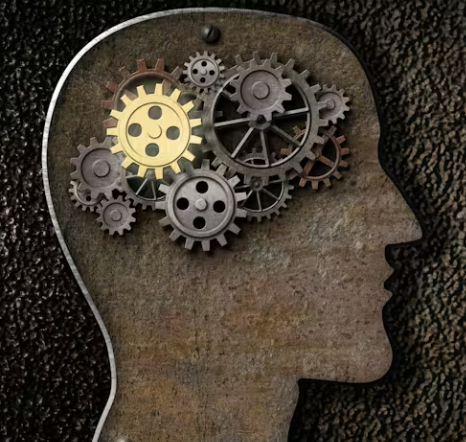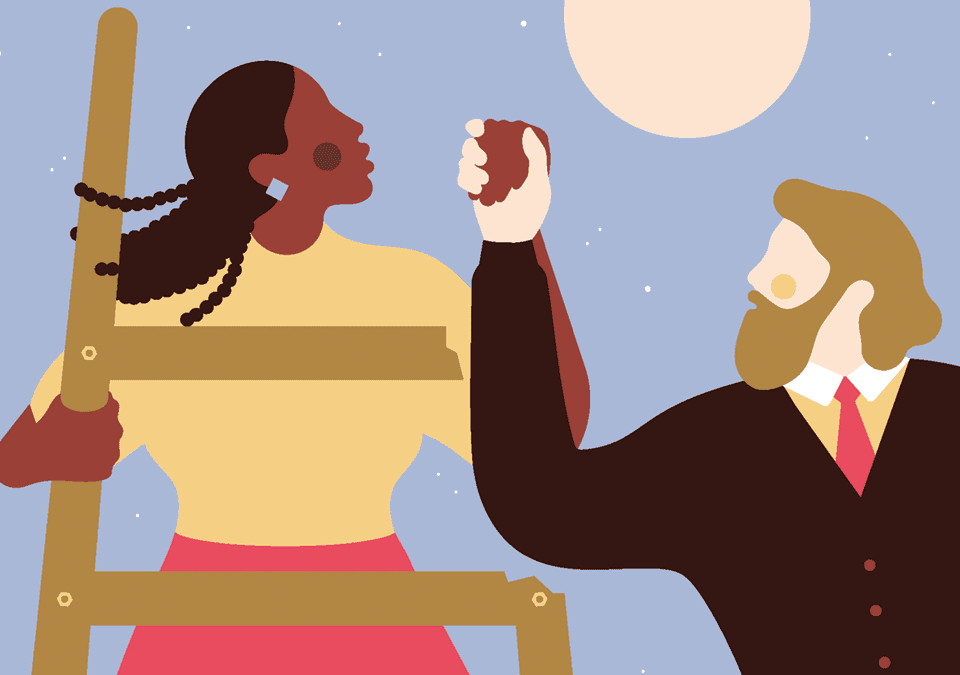
The Science Behind the Success: Unveiling the power of cognitive behavioral strategies
April 2, 2024
Shifting Paradigms: How collegiate women’s sports exemplify cognitive restructuring
April 8, 2024Approximately 50% of the human species will deal with a condition which detrimentally affects their cognitive wellness, physical wellness, sexual wellness, and emotional wellness.
There is no cure.
The condition can last 2-14 years, and some medical studies have said it can last as long as 25 years.
To date, medical research has not focused on finding solutions for the negative impacts of this condition.
Many doctors don’t ask questions about this condition and when they do, it is often after patients are dealing with the negative effects or after patients bring up concerns themselves. In those cases, it is not uncommon for patients to hear, “Nothing much can be done” and “It’s just part of life.”
In all transparency, I have this condition and it affects me in various ways every day. Take yesterday as an example. I felt great all day, but after dinner I bloated to the point where I looked like I was 4 months pregnant (not a look I ever wanted to revisit, thank you very much). Now keep in mind, I have read everything I can to help with my condition. I don’t eat gluten, dairy, processed foods, or sugar. I weight train. I walk. I drink lots of water. I limit my caffeine and alcohol. And yet, last night I had to change into my largest pair of sweatpants (you know the ones that you only take out when you’re sick) because I was so distended and uncomfortable.
As my husband brought me a heating pad, he said for what may be the hundredth time, “I’m so glad I’m not a woman” and I silently but bitterly agreed. I don’t wish this condition on anyone, and thankfully for the men in my life, they don’t have to worry about getting this condition.
The condition is menopause. As I dive headlong into it (and when I say dive, I mean the ugly dive-that-turns-into-a-bellyflop type), I cannot believe how little is known about this condition.
Even worse, it is unfathomable that we are not educating women (and their supportive non-female partners) about menopause. Not just educating, but preparing women for this part of their lives. I don’t know about you, but I don’t want to learn about the challenges associated with skydiving as I’m jumping out of the plane; I want information before the plane leaves the ground. This isn’t how society and many within the medical field approach menopause.
We wait until women are already affected by the symptoms to start the conversations. This could be after years of perimenopausal indicators without clear or accurate diagnosis. For example, women will describe situations such as:
- “I was so scared I was losing my mind and kept wondering if I was developing dementia at age 50”;
- “I felt like every time I looked in the mirror, my body kept deteriorating”;
- “I went from being this laid back, generally happy person to angry all the time, over the littlest of things and for no reason”;
- “I didn’t know if I had a brain tumor or a heart problem, and I kept wondering if I was becoming a hypochondriac. My doctor ended up sending me for scans and when the tests came back normal, she told me that the dizziness and palpitations were probably just age”.
The actress, Halle Berry, shared her own experience. At 54, she began experiencing painful sex. To capture her exact experience, the actress described it like having “razor blades in my vagina”. 😶 Yet when she went to her gynecologist, he diagnosed her with “the worst case of herpes” he had “ever seen.” Ms. Berry and her partner followed up with testing for the sexually transmitted infection. When both tested negative, she did her own research to discover her symptoms were indicative of perimenopause.
It is infuriating that such a normal part of female life has so little known about it, with few options for women dealing with these symptoms. Societal jokes about hot flashes and moodiness downplay the significant challenges menopause brings to women. In case you aren’t aware, here is a list of the major symptoms women deal with:
- Hair loss;
- Brain fog;
- Exhaustion;
- Vertigo/dizziness;
- Heart palpitations;
- Vaginal atrophy (dry, burning, itchy, UTIs, yeast infections);
- Dry skin and nails;
- Post nasal drip;
- Hot flashes
- Bloating/nausea;
- Rage;
- Lower sexual drive; and
- Depression.
When I had a discussion about the seriousness of menopause and my frustration with the lack of medical research, a male colleague accused me of “buying into the conspiracy theory” regarding the medical industry being “against women”. 🤬 After I took a few breaths, telepathically tried to gather my store of depleting hormones, and vowed not to slap this person, I explained that the medical industry isn’t against women; it isn’t supportive of women (insert any example: female morbidity in childbirth, access to medical procedures, abortion rights, funding for female-related medical research). Consider this. Five times more medical research has been done on erectile dysfunction than on the impact of hormonal changes for women. This is mindblowing when we consider that only about 19% of men deal with ED yet 90% of women deal with hormone-related problems in menopause.
Why do we wait until women are in their 40s or 50s to have the conversations, usually behind-closed-doors with our gynecologists, instead of openly discussing such a typical experience? I also wonder why I’m surprised when most things related to women’s reproductive and sexual functioning are discussed in whispers, if at all. Orgasms, sexual desire, sexual wellness devices (“toys” which are actually tools), breastfeeding, miscarriages, childbirth, infertility, and menopause are part of the female experience. They aren’t topics to keep in the shadows, only doling out information when asked or when impacted.
What about these topics is so taboo? The answer is nothing. The topics aren’t the problem. It is the discomfort within society as a whole that keeps information and research about these topics on a “need to know” basis…if we even have the data and research to share. It is the dismissal of women’s issues as silly, or trivial, or simply unimportant, and we are expected to manage our symptoms in silence.
So I’ll keep doing my research until society and the medical field catches up. In the meantime, I’ll pull together all my peri- and meno- girls and we will talk, and yell, and gather until our issues are seen as equally important to at least the 19% of the men in society. 🙄




